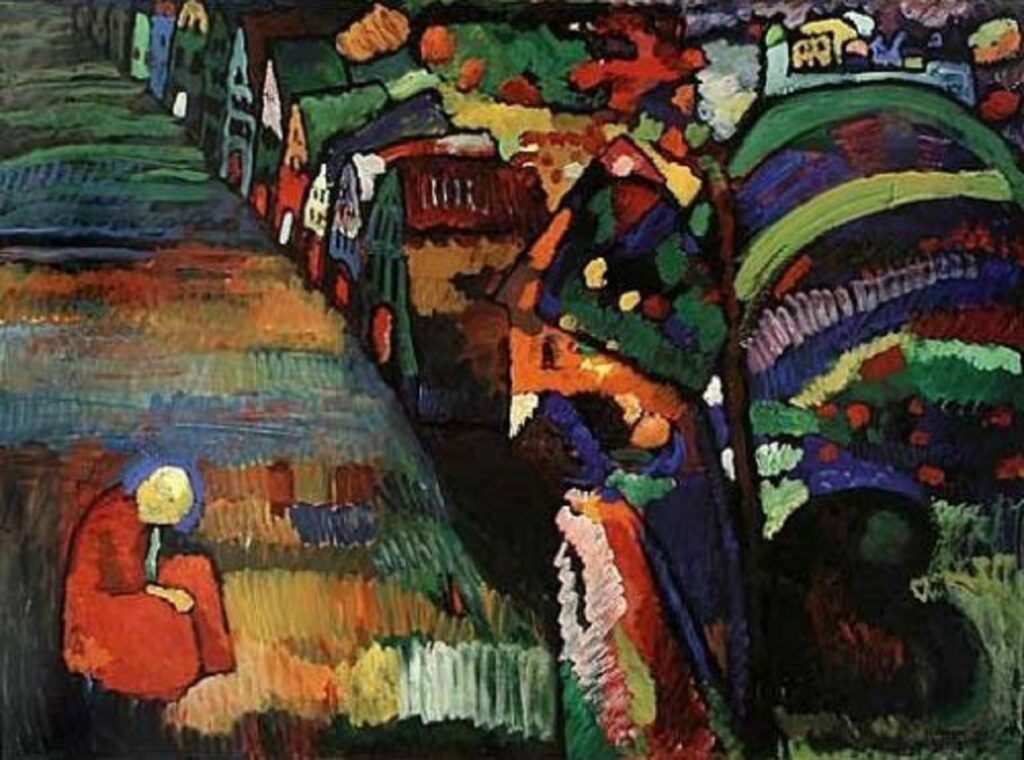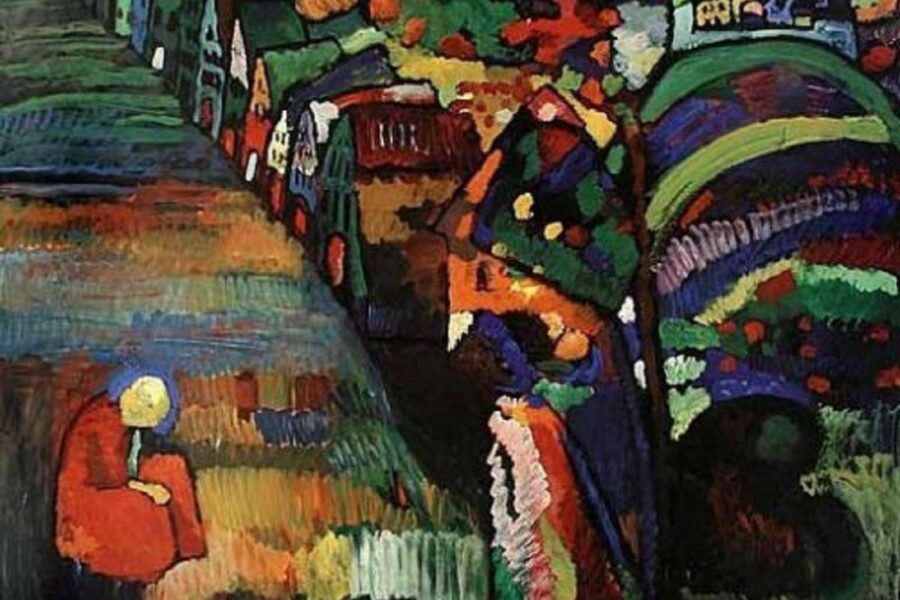Family claims painting by Wassily Kandinsky — owned by Robert Lewenstein during Nazi occupation — was illegally sold to Stedelijk Museum in Amsterdam in 1940
By TOI STAFF
November 3rd, 6:37 pm

“Painting with Houses” (“Bild mit Häusern”), a 1909 painting by Wassily Kandinsky. (Wikimedia Commons/PD-old-75)
A Jewish family seeking the return of a painting acquired by the Stedelijk Museum in Amsterdam during Nazi Germany’s occupation of the Netherlands has alleged bias by the country’s restitutions committee.
The heirs of Robert Lewenstein, who ed the Netherlands for France in 1940, are suing for the return of the €20 million ($23.3 million) “Painting with Houses” by Russian artist Wassily Kandinsky. The painting, which Lewenstein had owned, was sold to the museum months after Lewenstein fled.
The restitutions committee ruled in 2018 that the museum can keep the painting, claiming it was bought in good faith and that Lewenstein’s nances had been deteriorating at the time of the sale.
Lawyers for the Lewenstein heirs dispute those claims.
“Immediately after the invasion, the Germans started looting art. Pressure and coercion and the justifed fear that lived among the Jews were used,” attorney Simon van der Sluijs was quoted saying Monday by The Guardian.
“That fear did not pass by the Lewenstein family. The Nazis marched past their offices on Dam Square. To label the auction of works of art belonging to the Lewenstein family as voluntary is bizarre,” he added.
“The Lewenstein family’s financial situation was no reason to sell the painting,” said another attorney for the claimants, Axel Hagedorn. “In September 1940 there was a positive balance of 110,000 guilders. Robert Lewenstein, with an income of more than 5,200 guilders a year, was one of the 5% of taxpayers with the highest incomes.”
He said the painting was sold for just 160 guilders, and there was no proof that they were ever paid.
The claimants — Robert Lewenstein, Francesca Davis and Elsa Guidotti — also said four of the seven members of the restitutions committee have a conflict of interest, as they are members of the Stedelijk Museum’s businesses club or work at an office that sponsors the museum.
The Stedelijk Museum rejected the allegation of bias, saying none of the committee members have a financial stake in the museum or were ever employed by it.
A ruling is expected in the case on December 16, The Guardian reported.


